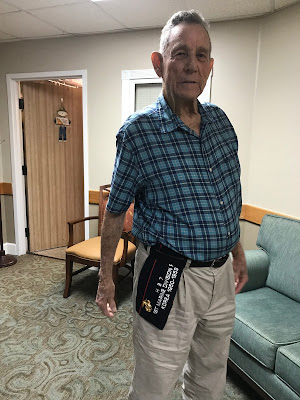I've bombarded your inbox this week because of some timely reviews and announcements. I'll be taking a short blogging break, but will be back soon with more giveaways and reviews.
*********
I'm the fortunate recipient of many fine picture books to review and give away. Here are three that I think would be great resources in a classroom library --although you are welcome to try and win them for a beloved young reader!America, Here I Come!
The author, Kyra Burton, is passionate about helping child immigrants transition to living in the United States. Her story follows Anna and Artem who live in Odessa in the Ukraine--"the most beautiful place in the world"--and a city that has beautiful butterflies. The children are upset when their parents announce they are moving to Raleigh, NC, where both of them have obtained jobs. The siblings dread having to make new friends and going to new schools; Anna finds some comfort by expressing her feelings in a journal. After getting settled in their new home, both Anna and Artem make new friends at a neighborhood park. On the way home they spot a butterfly and Anna points to it and thinks, "This butterfly is almost as pretty as the ones...back home." See Kyra's website for more resources on making America home.
Miep and the Most Famous Diary: The Woman Who Rescued Anne Frank's Diary
Anne Frank: The Diary of a Young Girl is a classic that's informed a world of readers of the atrocities of the Holocaust. But, who knows the story of Miep Gies--the woman who put her own life on the line in order to save Anne's family and several other Jews? Miep and The Most Famous Diary written by Meeg Pincus and illustrated by Jordi Solano, gives a different perspective on this famous story. The day that her friends are arrested is one that Miep has dreaded for two years. After they are carted away by the Nazis, Miep finds Anne's diary, knowing that Anne dreamt of publishing it after the war. She hides it and refuses to read it. But when Mr. Frank returns after the war, Miep gives him this wonderful reminder of his intelligent, hopeful daughter.
Everybody Says MEOW
Readers of my blog aren't strangers to Constance Lombardo and her love for all things feline (Mr. Puffball, anyone?). In her debut picture book, Constance has written and illustrated a fun, colorful picture book that is short on words, but big on a lesson about inclusivity. Toddlers will enjoy identifying the different animals and repeating the noises that each make. Great pre-reading skills are reinforced for first readers.
GIVEAWAYS
Please leave a comment by 6 PM on December 14. Leave your NAME and email address (I don't know who UNKNOWN is!) and which book you'd like to receive. Both America, Here I Come and Everybody Says MEOW are autographed by the author. I'll mail them on Monday and hopefully you'll get them in time for Christmas.
































